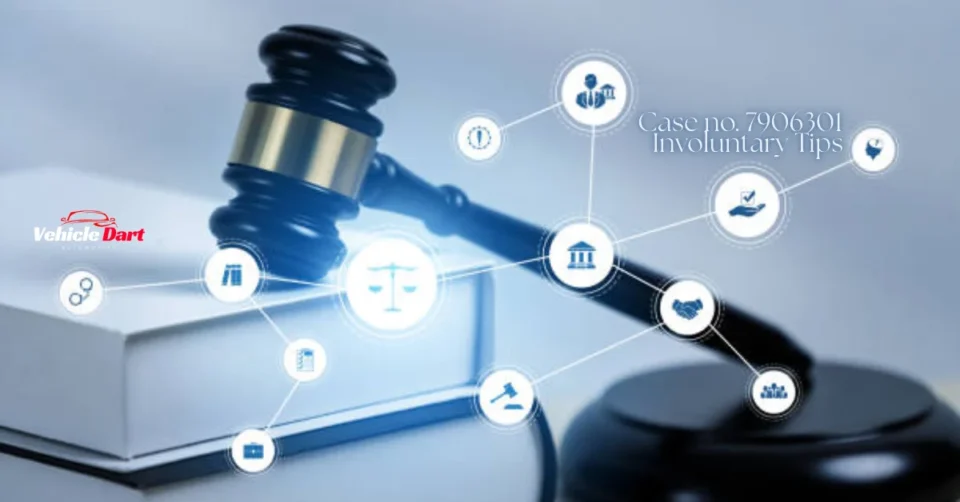Introduction to Case no. 7906301 – Involuntary Tips
In the complex world of tipping, a peculiar case has emerged that raises eyebrows and sparks debate: Case no. 7906301 – involuntary tips. This intriguing subject delves into an area where gratuity meets obligation, challenging our understanding of what it means to reward service. Whether you’re in the hospitality industry or simply someone who enjoys dining out, this topic can impact you more than you might realize.
What exactly are involuntary tips? How do they differ from traditional tipping practices? And importantly, how does this affect both employees and employers on a day-to-day basis? Join us as we explore these pressing questions and navigate through the legal landscape governing this unusual practice. Understanding case no. 7906301 is not just about knowing your rights; it’s about fostering fair treatment for everyone involved in the transaction of gratitude—and perhaps even reshaping industry norms along the way.
What are Case no. 7906301 – Involuntary Tips and How are They Different from Regular Tips?
Case no. 7906301 – involuntary tips refer to situations where employees receive gratuities without actively soliciting them from customers. These tips often arise in various service industries, including restaurants and hospitality.
Unlike regular tips, which are voluntary and based on customer satisfaction, involuntary tips may be included automatically in a bill or determined by company policy. This creates ambiguity around the concept of gratitude and employee compensation.
Involuntary tipping practices can lead to confusion among patrons who might not understand how these funds are distributed amongst staff. Employees may feel pressured as they navigate expectations set by their employers rather than relying solely on individual performance or customer appreciation.
The distinction between voluntary and involuntary tipping is crucial for both workers’ rights and business integrity, making it essential for companies to clearly communicate their policies regarding tip distribution.
The Legality of Case no. 7906301 – Involuntary Tips: Federal and State Laws
The legality surrounding case no. 7906301 – involuntary tips can be complex. Various federal and state regulations apply, creating a patchwork of rules that employers must navigate.
Under the Fair Labor Standards Act (FLSA), tips are considered property of the employee. This means that any non-voluntary deductions may infringe upon employees’ rights to their earnings.
State laws often add another layer of protection or limitation regarding how tips should be handled. Some states have specific statutes addressing tipping practices, which could affect how case no. 7906301 is interpreted in different jurisdictions.
Employers need to stay informed about local labor laws to avoid potential violations. Understanding these legal frameworks is crucial for both employees seeking fair treatment and employers striving to comply with relevant statutes.
Common Industries and Jobs Where Case no. 7906301 – Involuntary Tips Occurs?
Involuntary tips can be found across various sectors, often where service interactions are frequent. Hospitality is a prime example. Restaurants and bars frequently see employees receiving involuntary tips as part of their pay structure.
Another industry impacted is transportation. Rideshare drivers may experience situations where payment includes unexpected gratuities or mandatory fees perceived as tips.
Retail workers also face this issue, particularly in environments like salons or spas where “service charges” might blur the line between actual tips and involuntary contributions to earnings.
Healthcare professionals sometimes encounter similar scenarios when patients leave extra payments for care provided, creating confusion around what constitutes a tip versus legitimate compensation.
These instances highlight the complexity surrounding case no. 7906301 – involuntary tips within diverse job settings, revealing the need for clarity in practices across industries.
Understanding the Impact on Employees and Employers
The impact of case no. 7906301 – involuntary tips extends beyond mere financial implications for both employees and employers.
For employees, these involuntary tips can create a sense of mistrust. When workers feel they are not receiving fair compensation for their efforts, it can lead to low morale and decreased productivity. This dissatisfaction might result in higher turnover rates.
Employers face challenges too. They risk legal repercussions if they mismanage tip distributions or fail to comply with regulations surrounding these practices. Negative publicity from complaints can damage reputations and affect customer perceptions.
Building an equitable environment requires transparency in how tips are handled. Employers must communicate clearly about any policies regarding involuntary tips while ensuring compliance with laws at all levels.
In this landscape, fostering trust is crucial for maintaining effective workplace dynamics between staff and management.
Tips for Dealing with Case no. 7906301 – Involuntary Tips Situations
Understanding your rights is crucial when navigating involuntary tips. Research federal and state laws to grasp how they apply to your situation.
Communication plays a key role. Approach your employer or manager with any concerns about tipping practices. Expressing your thoughts can lead to constructive discussions.
Document everything related to involuntary tips, including dates, amounts, and conversations. This record will be valuable if you need to escalate the issue later.
Consider reaching out to co-workers who may share similar experiences. Building a support network can empower you in advocating for fair treatment.
If necessary, don’t hesitate to seek legal advice from professionals familiar with labor laws regarding involuntary tipping practices. They can offer personalized advice suited to your situation.
Stay informed about industry standards as well. Knowledge of what’s typical in your field helps frame conversations about fair compensation practices effectively.
Conclusion: Moving Towards Fair and Transparent Case no. 7906301 – Involuntary Tips Practices
Navigating the complexities of case no. 7906301 – involuntary tips requires a thoughtful approach from both employees and employers. As discussions around fair compensation continue to evolve, it is crucial for all parties involved to understand their rights and responsibilities.
For employees, being informed about what constitutes involuntary tips can empower them to advocate for better practices within their workplaces. Employers must also stay updated with regulations and consider implementing transparent policies that foster trust among staff members.
The journey toward more equitable treatment concerning tips is ongoing. By prioritizing open communication and adhering strictly to legal guidelines, businesses can create an environment where every worker feels valued and fairly compensated.
As awareness grows regarding case no. 7906301 – involuntary tips, both sides have the opportunity to work together towards sustainable change in tipping culture across various industries. A collective effort will not only lead to improved workplace dynamics but also contribute greatly to employee satisfaction and retention in the long run.
Explore new trends and exciting stories that inspire you on Vehicle DART.

